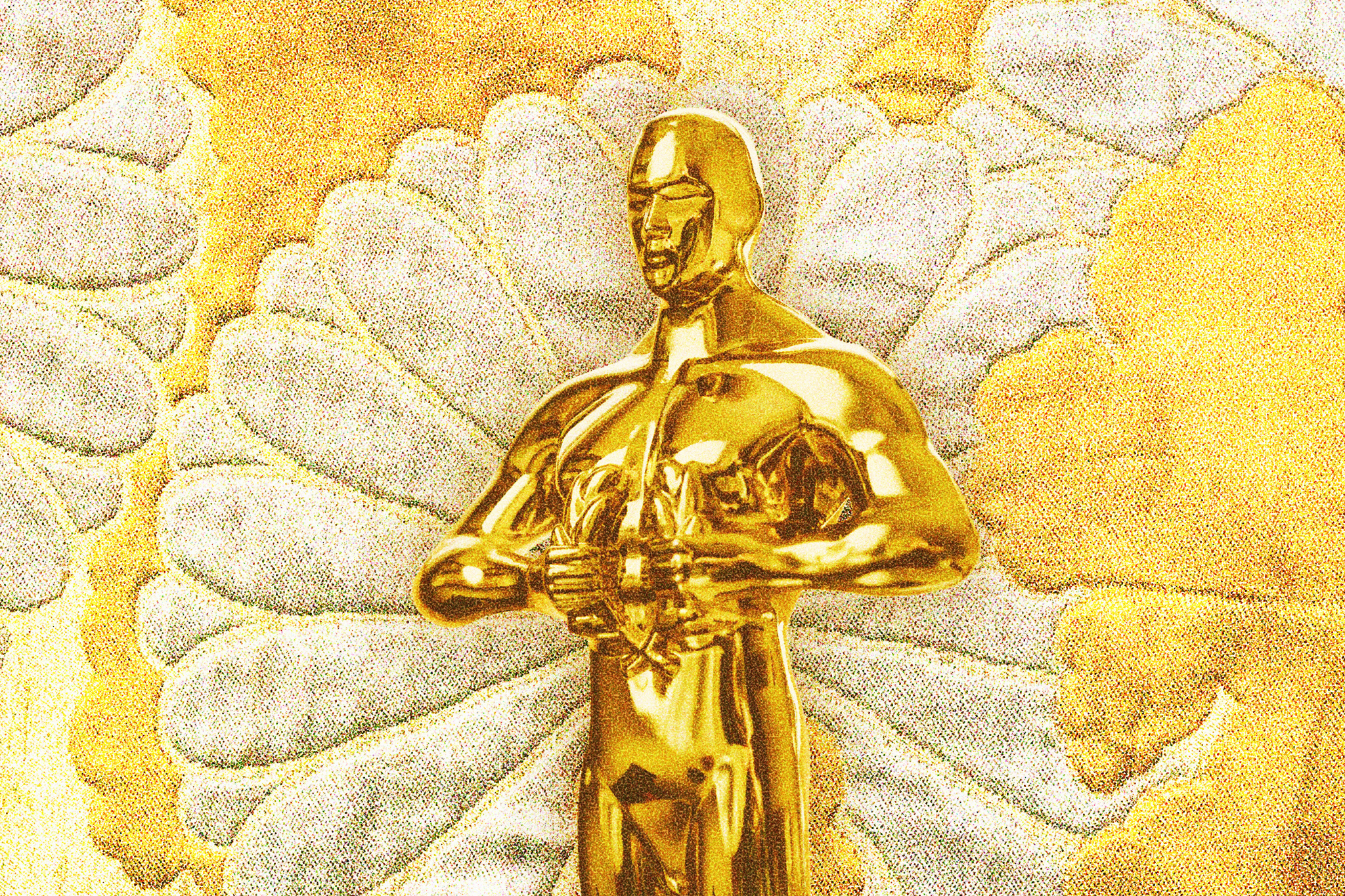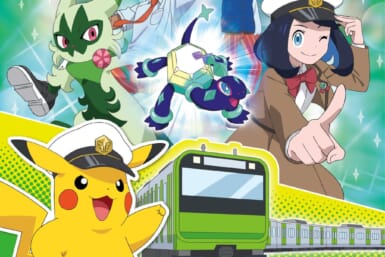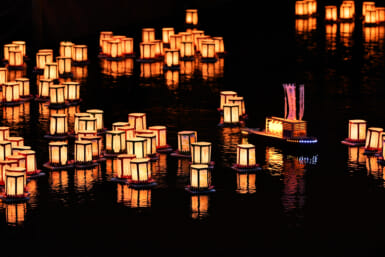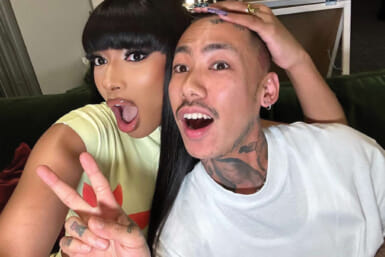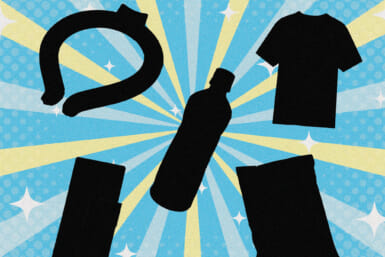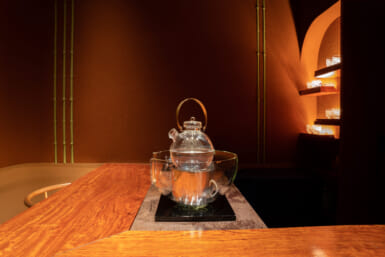The 96th Academy Awards ceremony is just a few days away. This year, three Japanese films have been nominated: Hayao Miyazaki’s The Boy and the Heron in the Best Animated Feature category, Wim Wenders’ Perfect Days for Best International Feature Film and Takashi Yamazaki’s Godzilla Minus One for Best Visual Effects. They will all be hoping to follow in the footsteps of Japan’s previous winners, including the likes of Spirited Away, Departures and Drive My Car. So, what has been the best Japanese film to walk away with a little golden statuette? For our latest article in our List of 7 series, we’re ranking Japan’s Oscar-winning movies. We’re not featuring Akira Kurosawa’s Ran as it picked up an Academy Award for Best Costume Design, which was technically an individual prize for Emi Wada. The dates below denote the year the movies received the Oscar.
1. Rashomon (Honorary Award for Best Foreign Language Film, 1952)
Acknowledged as one of the greatest movies ever made, Rashomon, released in 1950, was Akira Kurosawa‘s first international hit. The movie centers around the rape of Masago (Machiko Kyo) and the subsequent death of her samurai husband, Takehiro Kanazawa (Masayuki Mori). At court, Tajomaru (Toshiro Mifune), a notorious outlaw, claims he killed the man in an honorable duel. Next to take the stand is the samurai’s wife, who declares that she murdered her husband. Her deceased partner follows, speaking through a medium. He tells the court that he took his own life. The final account comes from woodcutter Kikori, who tells a priest and a commoner that all three had been lying. The storyline had such a strong impact, it led to a new phrase entering the English lexicon: the Rashomon effect, which describes a situation in which an event is given contradictory interpretations by individuals involved.
2. Spirited Away (Best Animated Feature Film, 2003)
Described by Steven Spielberg as “one of the greatest animated films ever made,” Spirited Away is the second-highest grossing Japanese movie in history. In 2003, it deservedly became the second film to receive the Academy Award for Best Animated Feature. However, director Hayao Miyazaki didn’t show up at the ceremony in protest of the war in Iraq. The story centers around a 10-year-old girl named Chihiro, who wanders into a town run by gods, witches and spirits. After her parents are turned into pigs, she’s forced to work in a bathhouse run by the evil witch Yubaba. Replying to a question on Twitter, Studio Ghibli revealed that the pigs symbolized human greed, writing that during Japan’s bubble economy of the 1980s, “people turned into pigs,” without realizing. They were then the same people complaining about everyone not having enough to eat during the recession.
3. Gate of Hell (Honorary Award for Best Foreign Language Film, 1955)
According to Martin Scorsese, Gate of Hell was “one of the 10 great color achievements in world cinema.” A visually stunning jidaigeki (period drama) masterpiece set in 1160, Teinosuke Kinugasa’s Jigokumon, as it’s called in Japanese, tells the story of a samurai named Morito Endo (Kazuo Hasegawa), who rescues lady-in-waiting Kesa (Machiko Kyo) following a coup at Castle Sanjo. After falling for her, he is then left distraught when he learns she is married. This news, though, doesn’t stop him from pursuing her. It’s an unrequited love that becomes increasingly obsessive and, as a result, his actions become more and more disturbing. The first Japanese color movie to be released internationally, it won the Grand Prix at the 1954 Cannes Film Festival. The Oscar for Best Foreign Language Film came the following year. Sanzo Wada also picked up an Academy Award for Best Costume Design.
4. Drive My Car (Best International Feature Film, 2022)
Speaking about his film Asako I & II in 2018, director Ryusuke Hamaguchi told Tokyo Weekender that he didn’t “make films to chase awards.” Well, that may be true, but he still manages to win them anyway. In 2021, his three-hour thought-provoking drama, Drive My Car, premiered at the Cannes Film Festival where it picked up three prizes. It went on to win several accolades, including a Golden Globe and a BAFTA. It was then nominated for four Oscars, becoming the first Japanese flick to score a Best Picture nod. Though it didn’t win in that category, it did receive the Best International Feature prize. Based on a Haruki Murakami short story from his 2014 collection Men Without Women, the movie centers on grieving theater director Yusuke (Hidetoshi Nishijima) and his chauffeur, Misaki (Toko Miura). Remarkably, Miura didn’t have a driving license when she was cast for the role.
5. Departures (Best International Feature Film, 2009)
A touching and comical film about an unemployed man who takes up a job as a nokanshi (traditional Japanese ritual mortician), the idea for Departures (Okuribito in Japanese) came from its lead actor, Masahiro Motoki. During a trip to India, he was moved by how life and death coexisted “in harmony and in a very natural way.” His fascination with this connection between the deceased and the living increased as he read Shinmon Aoki’s Coffinman: The Journal of a Buddhist Mortician. Motoki hoped to make a film loosely based on the book, but with death being a taboo topic in Japan, it proved a hard sell. Eventually, producers took up the project and Yojiro Takita agreed to direct it. At the 2008 Oscars, it was a surprise winner of the Best Foreign Language Film prize, pipping the highly fancied Israeli animated documentary Waltz with Bashir to the award.
6. Samurai I: Musashi Miyamoto (Honorary Award for Best Foreign Language Film, 1956)
The second film on the list starring the charismatic Mifune, Musashi Miyamoto was the first of Hiroshi Inagaki’s Samurai Trilogy. Had the Oscar been given for all three movies, it would have ranked higher. As a stand-alone film, though, it’s still impressive. It depicts the first “book” in Eiji Yoshikawa’s epic seven-part novel Musashi, about the most revered swordsman in Japanese history. Inagaki’s 1954 film begins in the year 1600, with Tokugawa Ieyasu’s triumph at the Battle of Sekigahara. It shows the transformation of Takezo (Mifune) from a wide-eyed peasant to an outlaw and eventually a samurai bestowed with the name Musashi Miyamoto. Another Musashi Miyamoto film directed by Yasuo Kohata that came out in 1954 starred Rentaro Mikuni in the titular role. He played Takezo’s best friend Matahachi in Inagaki’s movie. The best samurai film that year, though, was undoubtedly Kurosawa’s Seven Samurai, also starring Mifune.
7. La Maison en Petits Cubes (Best Animated Short Film, 2009)
At number seven on the list simply because it is only 12 minutes, Kunio Kato’s La Maison en Petits Cubes (Tsumiki no Ie in Japanese and translated to The House of Small Cubes in English) is an evocative tale about a lonely old widower who is forced to add layers to his home due to flooding. As he gathers his possessions on a rowboat, he then drops his trusty pipe deep into the submerged building. Going down to rescue it takes him on a contemplative journey as he relives scenes from his event-filled life, such as the first time he met his wife. It’s a moving story, written by Kenya Hirata, that sends a message about the damage we are doing to the environment, while also encouraging audiences to cherish every moment they have with loved ones. Kato, however, was reportedly unsatisfied with the film.

